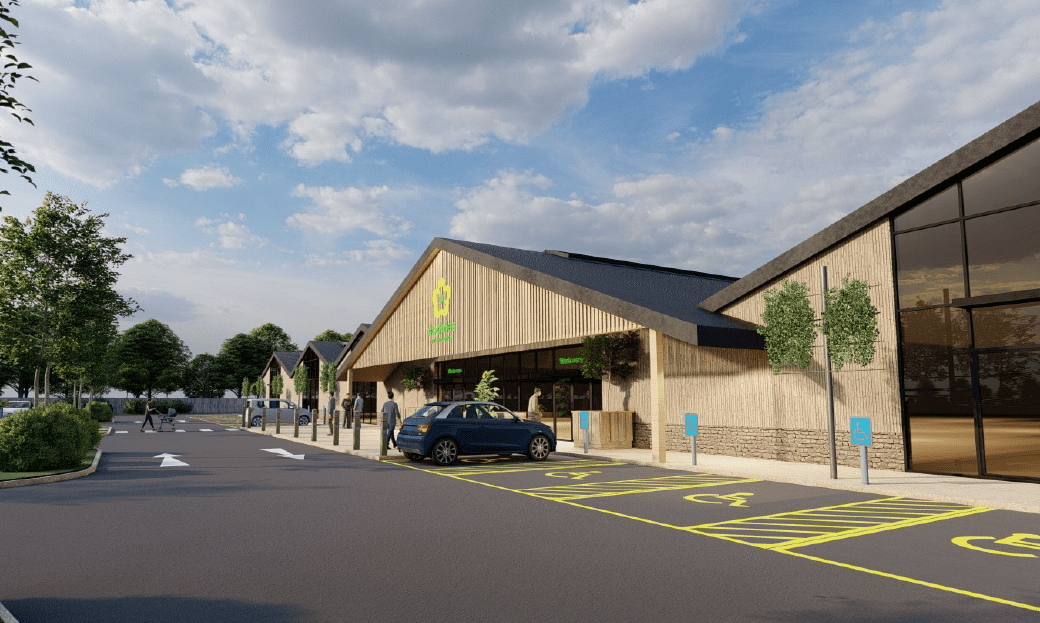Register to get 1 free article
Reveal the article below by registering for our email newsletter.
Want unlimited access? View Plans
Already have an account? Sign in
There is no doubt the landscape of retail is rapidly evolving. Driven by ever-developing technology, the effects of the pandemic, and changing consumer habits, it is no surprise that more and more retailers may be looking towards new technology and automation to help streamline their data and operations in a post-pandemic age.
This is where Responsiv steps in. The automation group is an expert in business efficiency, helping businesses of all sizes to make more efficient use of their data. In their words, they make sure that your information is always “in the right place at the right time”, while solving problems as they are presented.
“We’re not a database company, and we don’t build applications such as websites or accounting systems, but we do make sure that the right data for you is there when you need it,” says CEO Richard Whyte.
While Responsiv works across a wide-ranging group of industries, including healthcare, financial services, manufacturing, central and local government, it is also on hand to help retailers. Its technology is widely applicable and accessible, and as Whyte says, the technology itself “doesn’t care what industry you’re in”. Regardless of the industry, Responsiv prides itself on identifying problems across businesses, be that in delays or other inefficiencies, and identifying what can be done about it.
The benefits of Robotic Process Automation (RPA)
So, what is the technology and how can it help retailers? To start with, Responsiv’s technology and products are mostly based on world leading IBM products with technology that is used and endorsed by the Fortune 500 and large organisations around the world. “What we’re doing is taking the value that those organisations see and applying it to smaller businesses”, says Whyte.
The use of Robotic Process Automation (RPA) is what largely aids retailers in their journey towards automation and efficiency. We asked Responsiv more about RPA and how exactly it applies to businesses. Responsiv describes RPA as the use of software bots to automate “mundane, repetitive, rules-based” processes, allowing businesses to free up staff and resources, enhancing their efficiency. Its technology effectively imitates humans so that they can use interfaces designed for human use, saving companies both time and money in the short and long-term.
Whyte explains: “A lot of systems, such as accounting systems, websites, or HR systems, have user interfaces designed for human use. Because we’re human, and those interfaces are designed for us, filling in forms online or looking for information is quite straightforward. For a machine to do that, it is more difficult. They think in noughts and ones and are not quite so adaptive.”
“If someone moves a field from one form to another, for example, humans will pick up on that, but a machine may be confused,” he says. “When I’m bringing all this data together, if I’m using traditional integration, I will use special interfaces that are not for users but rather for machines. They’re designed to be very static and structured, so that the machine doesn’t get confused about what the data is. These are called APIs – application programming interfaces. Not every system or website has those, however, if I want to bring you some data that is from a system that doesn’t have APIs, or I want to do it really quickly and without the use of a programmer, then I use RPA.”
As it imitates humans, RPA uses exactly the same interface that a human would. Whyte notes: “What this means is if I don’t have a system like someone else’s website that I want information from, and I don’t have an API, rather than having someone sitting in a back room finding out data, I’ll use RPA. It’s a very quick way of getting going with efficiency, and it is also very difficult and very expensive to do it any other way.”
The technology used by Responsiv also works in real time, much to the benefit of business owners. “Quite often, organisations will run a report perhaps once a week, or once a month, and can then spend half a month poring through it, meaning the information and the resultant decision making is perhaps a month behind,” explains Whyte. “Responsiv grabs that information at the point where you asked for it. We will drag all of that information together for you, and in some cases, we can even summarise the data, allowing you to make business decisions quickly.”
How it applies to the retail sector
RPA technology provides the key to ultimate efficiency in one’s business. Not only can it help retail groups streamline their operations, but its applications are endless as it can be applied across almost all stages of operations.
RPA can first be of great use within the supply chain, for example. Whyte references supplier portals in particular. He explains: “As a supplier, you’re supposed to go into the portal and register your invoices or see the purchase order that might have been lodged for you, and the only way to do that is to have a person sit there and keep looking in the portal.
“Once raised, when will the purchase order be there? How often should I go and look for it? Am I going to look for it every day, once a week, every hour? What if I had a robot doing that instead. It doesn’t matter whether it’s six o’clock in the morning or five o’clock at night, the robot can consistently monitor the portal until it finds what it’s looking for. It extracts information from the system, and this can be done throughout the supply chain without a need for manual monitoring.”
RPA can also be used for vital market information. “You may be looking at a competitor and want to do a Google search every 10 minutes to see whether your competitor is doing something interesting, but why not get a robot to do that?”, says Whyte. “What they’re selling today, what they’re discounting – the robot does a Google search and pulls out whatever information you’ve requested, and also tells you when it’s found those things.”
RPA is also invaluable when it comes to stock control. Whyte notes that it can be of particular use to businesses with stores all over the country, and sell both in-store and online, who must navigate the challenge of organising stock and storerooms. RPA assists with this by monitoring the movement of stock through the supply chain, whilst helping retailers manage their stock levels, being alerted when certain stock is depleted, for example.
Whyte explains: “That’s the kind of common problem that we use RPA to help solve. In solving it, we make sure that you run down your stock properly, and make sure that you know where your stock is, even if it’s all over the country, and we make sure that you don’t order additional stock.”
RPA can also integrate with other data and machines to help review sales trends. “If you look at some of the more advanced ideas that people are playing with in retail, such as working out whether a shelf needs to be restocked, monitoring in-store footfall, capturing the pathways people take when walking around a store, all of this data we can integrate with as well,” says Whyte. “We can bring that data together and combine it with other information to be able to say ‘this is what you might want to do’. What you do with the findings is up to you, but we get you to that data.”
RPA and the future of retail
With its multitude of uses and consistent, reliable nature, it seems that RPA has its place in the future of retail. As Whyte notes, the benefits of RPA’s cost-efficiency and consistency make it a promising choice for retailers alike. “With rising salary bills, RPA allows you to get two robots for the price of a full-time employee for a year on minimum wage,” he says. “In addition, that robot is not going to do 40 hours a week, but seven days a week, 365 days a year. Plus, you’re not paying National Insurance or tax, and the robot will rarely call in sick. It’s just going to be there, chugging away at what it’s asked to do, so in terms of cost saving and effectiveness, it is ideal for retailers.”
Whyte adds: “Retail is often low margin but very high volume, and so businesses need to do things as efficiently as they can. The challenge for retail coming out of the pandemic is knowing what to invest in. For two years, most organisations have been doing what they need to do to stay alive, and nothing more, with not much room to think about the future. We’re starting to see people get back into the fight, however, and on that basis, this definitely has a place to play.”
Find out more at Responsiv’s webinar
Responsiv is hosting a webinar this June and inviting all Retail Sector readers to attend in order to find out more about RPA and what it can offer retailers. The webinar will be a joint effort with IBM deep learning solutions and takes place on Wednesday, 22nd June at 3pm, lasting one hour. The webinar will demonstrate the technology’s functionality and the outcome RPA can bring users.
The first half of the webinar will cover RPA’s different applications, such as in HR, the supply chain, finance, accounting, and IT, while the second half of the webinar will feature a live demonstration as well as a price comparison section. It will ultimately demonstrate the benefits of RPA to the retail sector, as well as share IBM’s knowledge of the industry.
Webinar details here
Join Responsiv on Wednesday, 22nd June at 15:00 GMT to learn how IBM RPA can drive business improvement and customer satisfaction every day.
Here’s the agenda at a glance:
- RPA use cases in the retail industry
- Short live demo and lessons learned from previous projects
- Panel discussion.
You’ll leave this event equipped with actionable tips, best practices, and the opportunity to register for a bespoke 1:1 workshop.



















